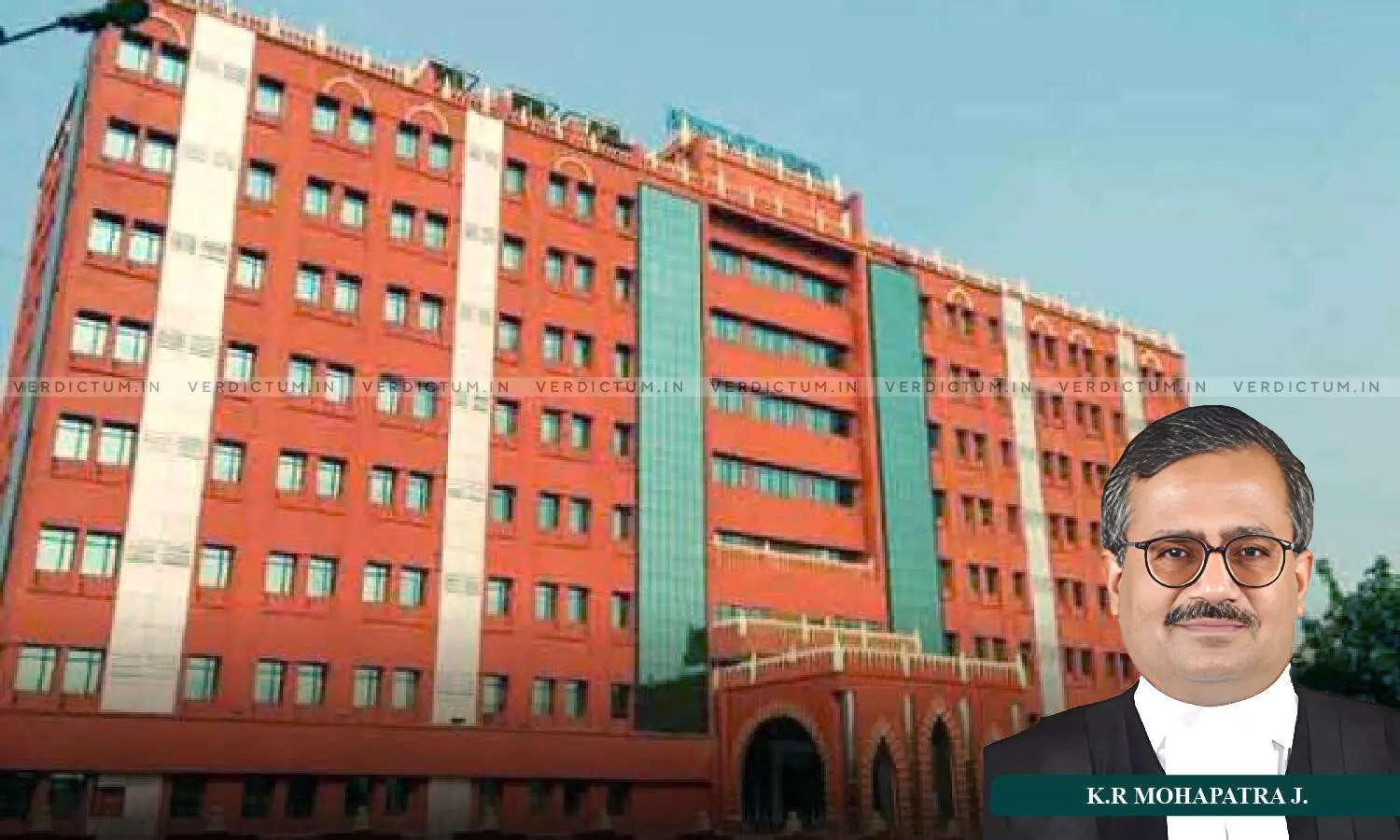
Legal Representative Can’t Take A New Plea In Written Statement Denying Pleadings Of Plaintiff Which Was Not Denied By Original Defendant: Orissa HC
 |
|The Orissa High Court held that the legal representative cannot take a new plea in the written statement, denying pleadings of the plaintiff which was not denied by the original defendant.
The Court held thus in an application filed under Article 227 of the Constitution in which the order of the Senior Civil Judge was under challenge by which the written statement filed by the legal heirs of the deceased defendant was accepted.
A Single Bench of Justice K.R. Mohapatra observed, “The ratio in the case of Niranjan Sahu (supra) is squarely applicable to this case. This Court discussing the scope of Order XXII Rule 4(2) CPC held that the substituted Defendants cannot take any independent stand by filing additional written statement when the deceased Defendant had already filed his written statement. In the instant case, learned trial Court in the impugned order observed that the legal representatives of the deceased Defendant No.1 have taken a new plea in their written statement denying the pleadings of the Plaintiffs, which was not denied by the original Defendants in their written statement. Thus, such a stand in the written statement will certainly prejudicial to the Plaintiffs and is contrary to law. As such, the written statement filed by the substituted Defendants could not have been accepted.”
Advocate Debasis Tripathy appeared for the petitioner while Advocate Basudev Mishra appeared for the opposite parties.
Facts of the Case -
The counsel submitted that the petitioner as Plaintiff filed a suit for declaration that the Registered Sale Deed is null and void, declaration that the ROR vide Khata No.56 of Bangapalli Mouza in the name of the Defendants is also null and void and also to declare right, title and interest of the Plaintiffs over the suit land as well as for permanent injunction. During pendency of the suit, Defendant No.1 died and was substituted by his legal heirs i.e., Opposite Parties. Before death, Defendants had filed a written statement but, the legal heirs on being substituted, filed another written statement taking independent stand, describing a different story.
Hence, the Plaintiff-Petitioner filed an application with a prayer not to accept the said written statement. The Trial Court without considering the petition in its proper perspective, dismissed the same and accepted the written statement filed by the legal heirs of the defendant subject to payment of cost of Rs. 300/-. It was, therefore, submitted that the additional written statement filed by the substituted defendants with an independent stand, which was not available in the original written statement, should not have been accepted in view of the provision under Order XXII Rule 4(2) of the Civil Procedure Code (CPC).
The High Court after hearing the contentions of the counsel said, “Taking note of the submissions made by learned counsel for the parties, this Court is of the considered opinion that the legal representative of a deceased party only steps into the shoes of the deceased. They are legally bound by the pleadings taken by the deceased. If any party wants to take an independent stand, he has to seek permission of the Court to be impleaded as a party to the suit by filing an application under Order 1 Rule 10 CPC. The legal representative may, however, seek permission for amendment of the pleading filed by the deceased. In the instant case, no such application has been filed by the legal heirs of the Defendant No.1 either to be impleaded as parties under Order 1 Rule 10 CPC or to amend the pleading in the written statement.”
The Court further noted that Order XXII Rule 4 CPC provides the procedure for substitution of legal representative in case of death of sole defendant or several defendants in a suit and Sub-rule (2) of Rule 4 provides that “any person so made a party may make any defence appropriate to his character as legal representative of the deceased defendant.” It added in view of the provision under Order XXII Rule 4(2) CPC that the substituted legal representative(s) can take a defence appropriate to its/their character as a legal representative.
“Since the suit is of the year, 2013, steps should be taken for early disposal of the same in accordance with law. Parties are directed to cooperate with learned trial Court for early disposal of the suit. If any of the parties does not cooperate, learned trial Court may take coercive measure in accordance with law”, it ordered.
Accordingly, the High Court allowed the application to an extent and set aside the impugned order.
Cause Title- Anantram Bhotra v. Pratima Bhotra and others
Appearance:
Petitioner: Advocates Debasis Tripathy and M. Panigrahi.
Opposite Parties: Advocate Basudev Mishra